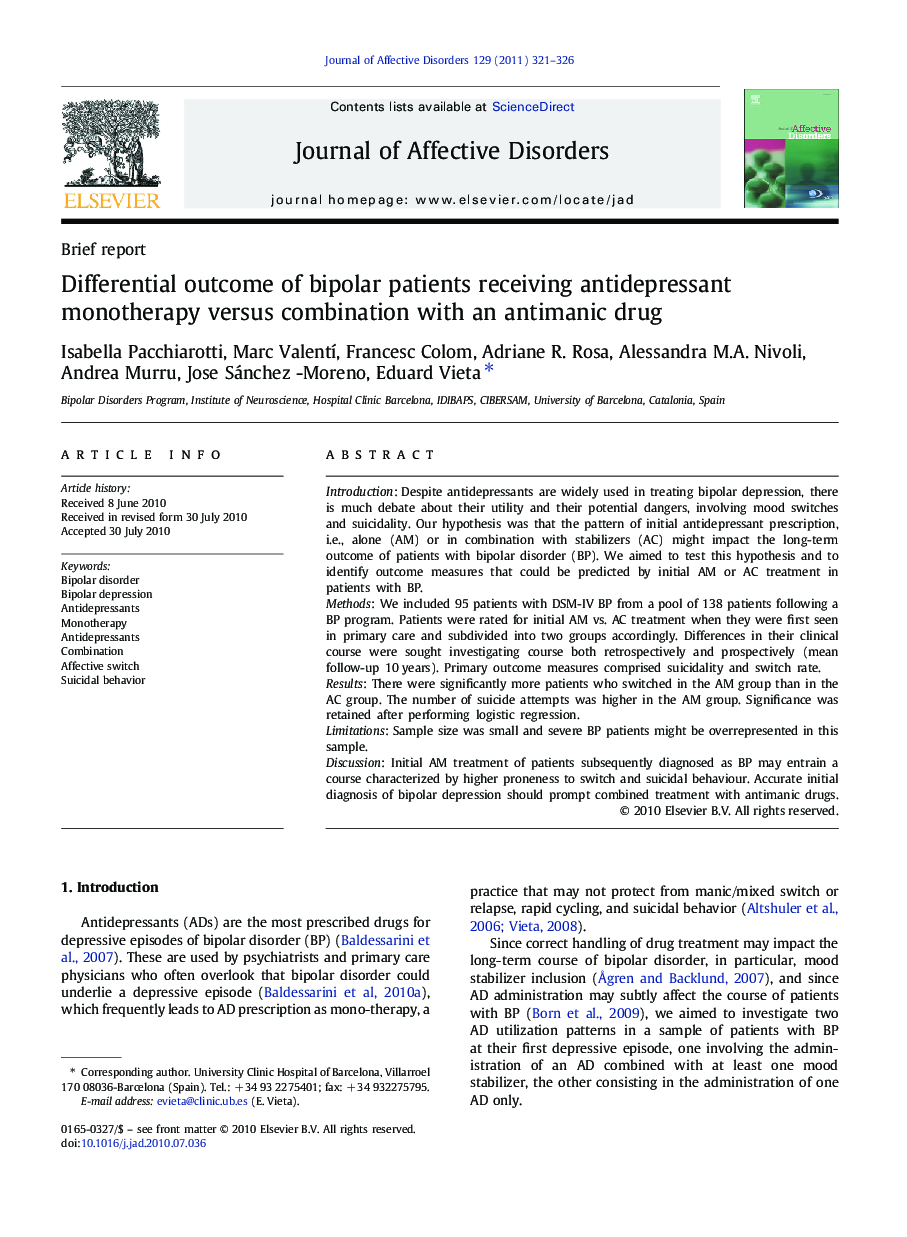| Article ID | Journal | Published Year | Pages | File Type |
|---|---|---|---|---|
| 4186543 | Journal of Affective Disorders | 2011 | 6 Pages |
IntroductionDespite antidepressants are widely used in treating bipolar depression, there is much debate about their utility and their potential dangers, involving mood switches and suicidality. Our hypothesis was that the pattern of initial antidepressant prescription, i.e., alone (AM) or in combination with stabilizers (AC) might impact the long-term outcome of patients with bipolar disorder (BP). We aimed to test this hypothesis and to identify outcome measures that could be predicted by initial AM or AC treatment in patients with BP.MethodsWe included 95 patients with DSM-IV BP from a pool of 138 patients following a BP program. Patients were rated for initial AM vs. AC treatment when they were first seen in primary care and subdivided into two groups accordingly. Differences in their clinical course were sought investigating course both retrospectively and prospectively (mean follow-up 10 years). Primary outcome measures comprised suicidality and switch rate.ResultsThere were significantly more patients who switched in the AM group than in the AC group. The number of suicide attempts was higher in the AM group. Significance was retained after performing logistic regression.LimitationsSample size was small and severe BP patients might be overrepresented in this sample.DiscussionInitial AM treatment of patients subsequently diagnosed as BP may entrain a course characterized by higher proneness to switch and suicidal behaviour. Accurate initial diagnosis of bipolar depression should prompt combined treatment with antimanic drugs.
